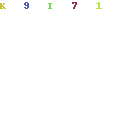The last poem of Adil Jussawala’s latest — and sixth — anthology of poems, Shorelines (Mumbai, Poetrywala, 2020), begins:
The great Romantics said it with shipwreck
(Gericault, Turner), how elements fuse
to block out all light, then crash on the hapless
left clutching air or if lucky, lifted again to try
salvation, to catch signs of life on a hill, a shoreline,
a lighthouse.
Adil Jussawalla
Shorelines
Poetrywala (Mumbai, 2020)
Théodore Géricault’s Le Radeau de la Méduse – initially called Scène de Naufrage or Shipwreck Scene – and J.M.W. Turner’s The Shipwreck are both dramatic representations of disasters at sea and the desperate attempts of survivors to find shelter, guided by the glare of a lighthouse. The search for shelter is also a sentiment that infuses many of the poems in the book under review.
Jussawalla – born in Bombay (now Mumbai) 80 years ago – has lived in many different places: his hometown, in England where he studied as a young man, in France. “I’m puzzled that wherever I’ve stayed… in my parent’s flat, in a bed-sit, in an attic room or, as now, in my own two-bedroom flat, I’m unable to call them ‘home’,” he said in a recent interview. “I see them as shelters” Places, even if it means his beloved Bombay, does not provide him with a feeling of home.
He describes Bombay as “Castaway City”:
Once a great hub, now a receiver of spills, dud robots, pouches of spoiled powder. Coil wire litters our sands, crewless wrecks on our shorelines.
Jussawalla claims he is not a nostalgist – the Bombay of his youth was no better than the current city where he lives. Perhaps social injustices have only aggravated. The image of a littered beach brings to mind the clean-up act at Versova. One beach might have been transformed by concerned citizens, but Bombay remains unchanged.
It is a site of the quotidian:
…our days get no heavier,
it’ll soon be sunrise.
(‘Cuffe Parade’)
The absurd:
Sea made of newsprint, ships made of newsprint
there just an hour ago and gone down a drain
we refused to confirm existed.
(‘Now’)
Or the montage of dramatic glimpses one catches from the windows of its local trains:
…light bulbs weakly shone through windows
calling ‘Here is safety, Here is home’,
moving on their own momentum past you,
fast or slow, depending on their distance
from the speeding train you’re in.
(‘Fires in the City’)
The poet, in fact, uses so many maritime metaphors – several poems have titles such as ‘From a Manual of Maritime Signals’, ‘A Message from the Harbour Master’, ‘Darken Ship’, ‘Navigation Marks’, and ‘Alang’ (the town in Gujarat famous for its shipbreaking industry) – that one might even imagine Bombay to be a vessel beached on the shores of the Arabian Sea. In recent years, several poets based out of Mumbai or towns near the Western Ghats have explored maritime themes. For instance, Ranjit Hoskote in Jonahwhale (2018) and Arjun Rajendran – who has also written an endorsement for the book under review – in his forthcoming collection, One Man Two Executions. Perhaps in these books, published near each other, we are witnessing a new phenomenon in Indian English poetry.

Adil Jussawalla. Photo: montrealprize.com
If it is not a city or a place, does Jussawalla find homes in people? The book is dedicated to his wife Veronik and his brother Firdausi. In the interview quoted above, Jussawalla identifies living with these two individuals as exceptions to his shelter/home dichotomy: “Occasionally I make two exceptions — my father’s clinic in which I spent 10 years along with my parents, six of those years with my younger brother Firdausi. And Veronik’s (Jussawalla’s wife) room in a 108-year-old stone house in La Bourboule, France.” Two epistolary poems – ‘Reply to a Postcard from Overseas’ and ‘An Expats Letter Home’ – also seem to explore this theme. In the first one, which begins with an answer to the question of whether there are still kite fights at home, ends: “You’re gone, cousin, you’re gone.”. The second one seeks a reason to stay away:
Nothing I can do now but lose myself in stupor,
no longer part of businesses and trades
that drew me here. Should I keep waiting
for local spells of magic to catch me, make me stay?
A true Jussawalla fan is unlikely to be disappointed by this collection, because the 44-odd poems in it explore, in different ways, themes that are the poet’s trademark. But another reader might come away a little let down by the lack of newness. Land’s End (1962), Missing Person (1976) and Trying to Say Goodbye (2011) explore – perhaps with even greater felicity – the subjects of this book. Almost all the poems here are left-aligned, free verse, ignoring the plethora of technical innovations that Jussawalla’s younger contemporaries are exploring. There is also a sense of material comfort – the poet does, in fact, point out his “well-appointed” shelter. Nevertheless, Shorelines is a very important addition to the canon.
Uttaran Das Gupta has recently published a novel, Ritual, and teaches at OP Jindal Global University, Sonipat.
Source: https://thewire.in/books/adil-jussawalla-shorelines-book-review-the-lighthouse-of-bombay


